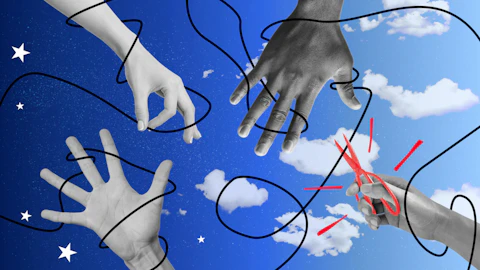As an immigrant, my mother didn’t realize that government support was possible, never reaching out for food assistance or the like. You can’t ask for what you don’t know exists.
Read the rest of COURIER’s What Is Freedom series here.
Like many immigrants, we came to America for a better life, and like many immigrants, we were met with scarcity instead.
Scarcity was not new to us. As Bengalis, we survived Churchill stealing our food supplies to strengthen his military. In fact, we trudged through centuries of colonial regime sucking the nutrients out from our land, from our bones. Millions of us did not survive.
To stretch food out, we used cheap and accessible ingredients, like potatoes and eggs. We thought coming to America would change our future. We could finally live in abundance. We were wrong.
As a child who experienced food insecurity, freedom is a field of nutritious food and the ability to grow life from soil: herbs, vegetables, and fruits, to give freely to my neighbors, my family, and to myself. Though food reflected back to us our painful history, our creativity and our culture insisted we continue attaching taste to celebration and connection. Once we arrived in America, however, we were hard pressed to recreate the dishes my parents grew up with, simply because the ingredients we needed were out of our meager monthly budget.
My mother carefully planned out our trips to the grocery store, mapping out what aisles we went to and what we put in the cart. She bought basic necessities, choosing generic goods over anything branded, and therefore, overpriced. During one such trip, she told me that growing up, her family ate fish every day. Now, fish was too expensive to entertain buying. On rare occurrences, I’d catch her look longingly over at a pint of ice cream or a fresh loaf of bread before rushing off to get the next thing on her grocery list.
“Food is medicine,” my mother used to say, as the stink of a microwaveable bag full of broccoli and cauliflower perforated our home. As a single parent, she juggled multiple jobs at a time to make ends meet. The recipes she inherited were too lengthy and time-consuming to reproduce for our dinner table, so she went for quick and easy meals instead. Nevertheless, my mother could take four ingredients out of the fridge and make a masterpiece of it. That was her power.
As an immigrant, my mother didn’t realize that government support was possible, never reaching out for food assistance or the like. You can’t ask for what you don’t know exists. No colonial government fed or protected us. They believed they owned us, and that it was an honor for us to serve them. Our grief, our trauma, our fear of scarcity came from experience—from memory.
For my family, freedom was tied to our financial health. If my mother could pay her debt and bills, she could have afforded to buy us more fresh foods. If she didn’t have to work so much, she would have had more time to recreate memories by preparing us the dishes that she grew up with.
The ability to grow our own food, to exercise control over our palates and what we put into our bodies, is a journey my family and I are only now beginning. My mother, now a homeowner, is starting to envision her small plot of land as a host to flowers, herbs, and vegetables. I’m now cultivating the time and energy to cook those traditional dishes, and intentionally budget for those expenses.
My biggest and deepest wish for Bengali people—for all formerly colonized and enslaved communities—is for us to enjoy food and eat well, without fretting over the cost of joy.





